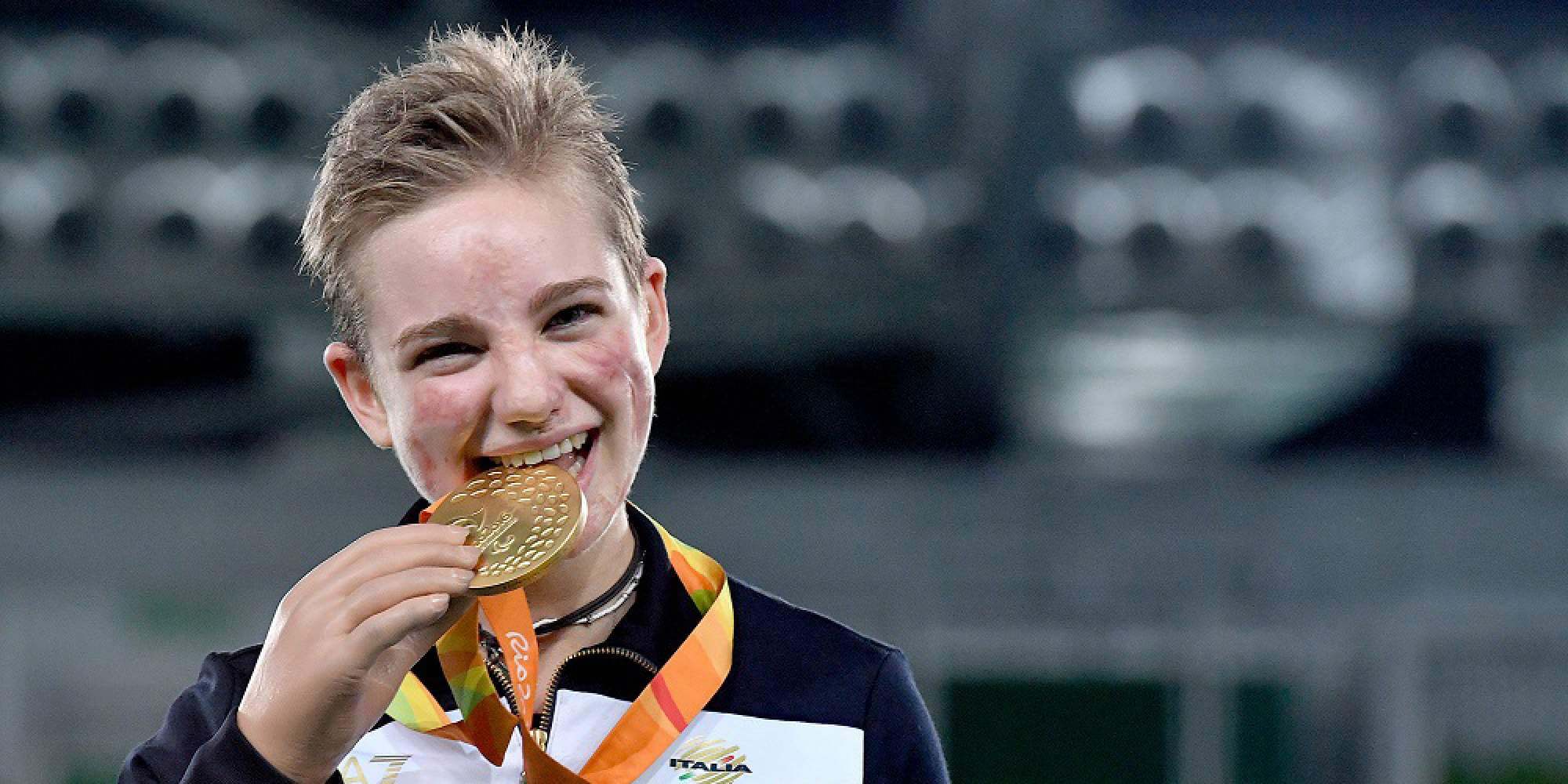Bebe Vio : “ Isn't it possible ? I'm sorry, I don't understand those words ”
Categories:
Prysmian Ocean Racing
The story of Beatriz Vio, also known as Bebe, is a source of inspiration for anyone who gets to know her. At an early age, she suffered from severe meningitis that caused a necrosis in her joints. Subsequently, her both legs were amputated from the knee, and both her arms from the forearm. One might have thought that there are many activities that she would no longer do, but she did not see it that way. Fencing was one of her passions and although it is a sport that requires the movement of the wrist and three fingers of the hand, which she was not able to perform, she was not willing to drop it out it.
After three months of intensive rehabilitation, she was ready to resume fencing, which she had practiced since she was five years old. This was possible thanks to a special prosthesis that allows her to hold her foil and wield it from the shoulder. She uses a hook system in her forearm, to which a carbon prosthesis and a sword can be attached. Everything was specially designed for her, since she is the first fencer in the world without hands. For Bebe, fencing is like life itself. It is a sport that teaches you to compete against yourself: if you do not set goals for each training, you never win. And even though we all like winning, it teaches you to move forward by setting goals at a time, it encourages you to get the most of each experience and it helps you overcome bad times.
Two years after the surgery, she participated in the first wheelchair fencing competition. In 2013, she won her first World Cup in Montreal after defeating Olympic silver medallist Gyöngyi Dani. For this Because of that participation, she was named Paralympic Athlete of the Month by the International Paralympic Committee. And from then on, she has never stopped: She became one of the most famous athletes in Italy and reached the title of Paralympic and World Fencing Champion at just 19 years old.
Apart from being an excellent fencer, Bebe became an advocate for vaccination. Since just a vaccine would have been enough to avoid her case to prevent her from getting meningitis in the first place. Back in time her doctor considered that she was too young to be vaccinated: but two years later, she contracted that disease. Her experience also led to the foundation of Art4sport ONLUS, a non-profit organization that promotes sports as therapy for young people with limb prostheses and helps amputee children to enjoy the beauty of life and get integrated into society.
Those who go through hard times regarding their health conditions sometimes tend to think their lives have come to an end and that they would not be able to achieve their dreams. However, for people like Babe, the consequences of their diseases are not an impediment. Almost 95% of meningitis patients do not survive the first hours of treatment, so we can say her most important victory was to overcome the disease. In an interview Bebe explains her approach to life, “I don’t understand why I should be angry when I have survived the disease, I am enjoying life to the fullest, so I have a lot of fun. I also have days in which I wake up on the wrong foot, but I think it’s us who decide how to seize the day. If you are not the one who decides you want to live well, you will never do it. It’s not worth being sad: it’s great to come across someone with a smile on the face.”
Bebe inspires anyone who believes they do not have what it takes to accomplish their dreams. And by doing so, she teaches people that fulfilling our dreams is not about whether we have enough talent or the necessary tools to become what you want to be, but how hard you want to achieve it. Since she was eleven years old, she has proved to have the attitude of a winner and she has been willing to take on new challenges and experiences. Because as she says in a documentary of the Paralympic Games, the lack of a limb is not necessarily something terrible, it only made her different, and differences hide great beauty: “I love my prothesis. Because I don’t have hands, I have to work harder on everything. I can never relax, but I love it.”



